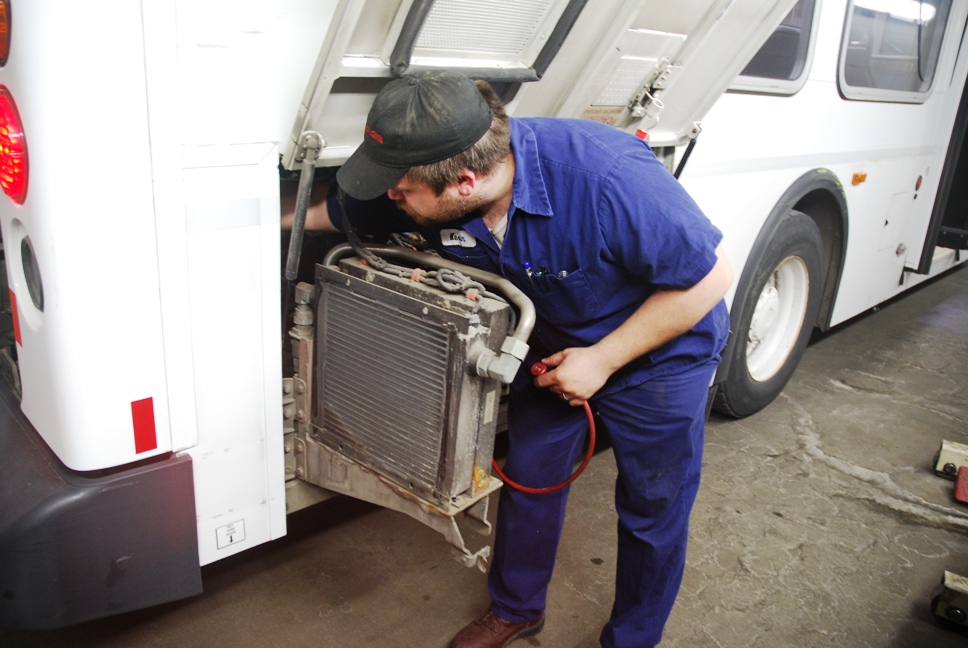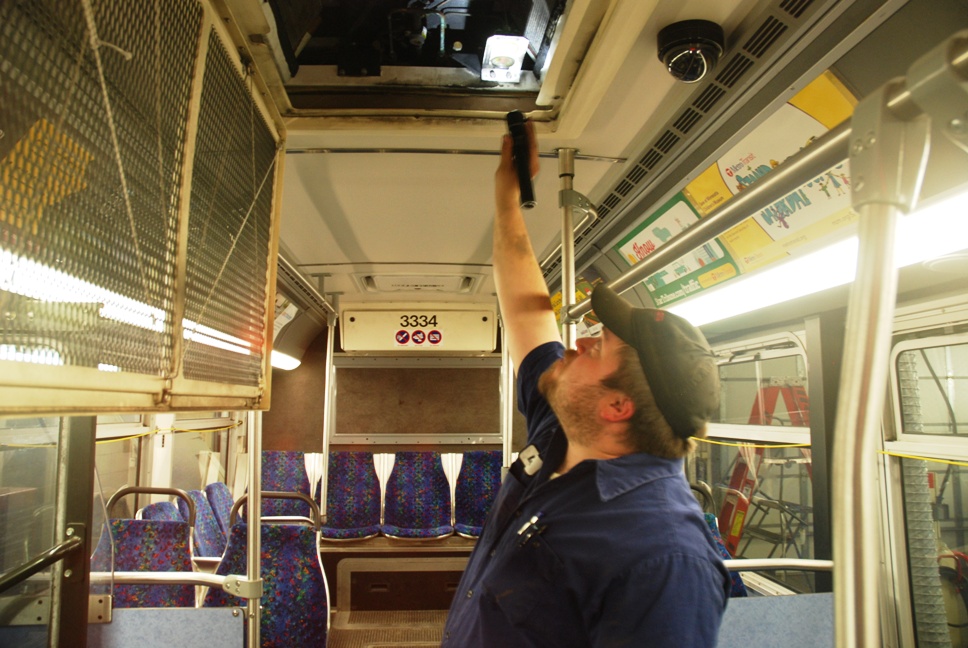
Among Kevin Hendrickson’s classmates, buses weren’t exactly top of mind.
Instead, those enrolled with him in Hennepin Technical College’s Medium/Heavy Truck Technology program largely thought their careers would involve working on tractor-trailers, considered the “Cadillac of the road.”
When it came time to find an internship, though, Hendrickson went a different direction. He spent a year dividing his time between the classroom and working at Metro Transit’s bus maintenance department.
Hendrickson’s divergent path was inspired by the decades his father spent as a bus mechanic, as well as the prospect of working on some of the largest vehicles on the road. Metro Transit’s high-floor, 40-foot buses weigh more than 30,000 pounds and are more than 10 feet tall; 60-foot articulated buses weigh about 40,000 pounds.
“For me, the bigger it is the more fascinating it is,” said Hendrickson, who spent his internship doing everything from removing seats to replacing transmissions and brakes.
The decision to go a different direction paid off: in 2013, Hendrickson became the first Metro Transit intern to graduate from Hennepin Tech’s unique, two-year program and to be hired as a full-time mechanic-technician.
Today, Hendrickson works at East Metro Garage, inspecting and repairing heating and cooling systems. He joins more than 260 mechanic-technicians who are based at one of five Metro Transit service garages or the Overhaul Base in St. Paul, ensuring the fleet of more than 900 buses operates safely and reliably.
For Metro Transit, recruiting and training new mechanics like Hendrickson isn’t just a goal but a necessity. As older mechanics retire it has become increasingly urgent to recruit new mechanic-technicians who can take their place.
The partnership with Hennepin Tech began a few years ago as part of a larger effort to fulfill the need. Metro Transit is also approaching students at high schools and vocational schools and encouraging its own helpers and cleaners to take coursework that puts them on the path toward becoming a mechanic.
While the internship program won’t by itself come close to filling the ranks – just a few students can participate at a time – it is nonetheless a critical step towards addressing the need.
Jan Homan, Metro Transit’s deputy chief operating officer for bus operations, said stories like Hendrickson’s illustrate to young people that they can make a career of transit and make it more likely for them to get interested.
“We’re in the mix now,” Homan said. “We have young people who can advocate and let their peers know about the opportunities that exist.”
 Homan’story is itself a testament to the type of career a mechanic can build at Metro Transit. Homan started as a bus cleaner in 1975 and now oversees the bus transportation and maintenance divisions.
Homan’story is itself a testament to the type of career a mechanic can build at Metro Transit. Homan started as a bus cleaner in 1975 and now oversees the bus transportation and maintenance divisions.
Chuck Wurzinger, assistant director of bus maintenance, said the program is uniquely suited to Metro Transit’s needs because of the hands-on experience it provides.
In most programs, students spend 18 months in school but have little exposure to the work environment they’ll be entering. Mid-career mechanics often come over from the automotive, trucking or airline industries and have to do some on-the-job learning to better understand buses.
“You need a good theoretical foundation but doing it just compounds the learning,” Wurzinger said. “Until you get to actually manipulate it you really can’t get a feel for it.”
Dale Boyenga and Duane Rasmussen, co-instructors of the Hennepin Tech program, said Metro Transit is especially unique among the more than 80 employers that partner with the school.
While the program teaches fundamentals common to all diesel equipment, Metro Transit’s buses can be more challenging because of all the different components involved. Computers are used on several different systems, which must work together for a bus to perform properly.
“There is probably more advanced technology on a bus than anything else we work on,” Boyenga said.
Hendrickson said he was struck by all of the different technologies in use on a bus and that the experience he gained during his internship has been critical in his new position.
“It was one of the best years of learning I ever had,” he said.